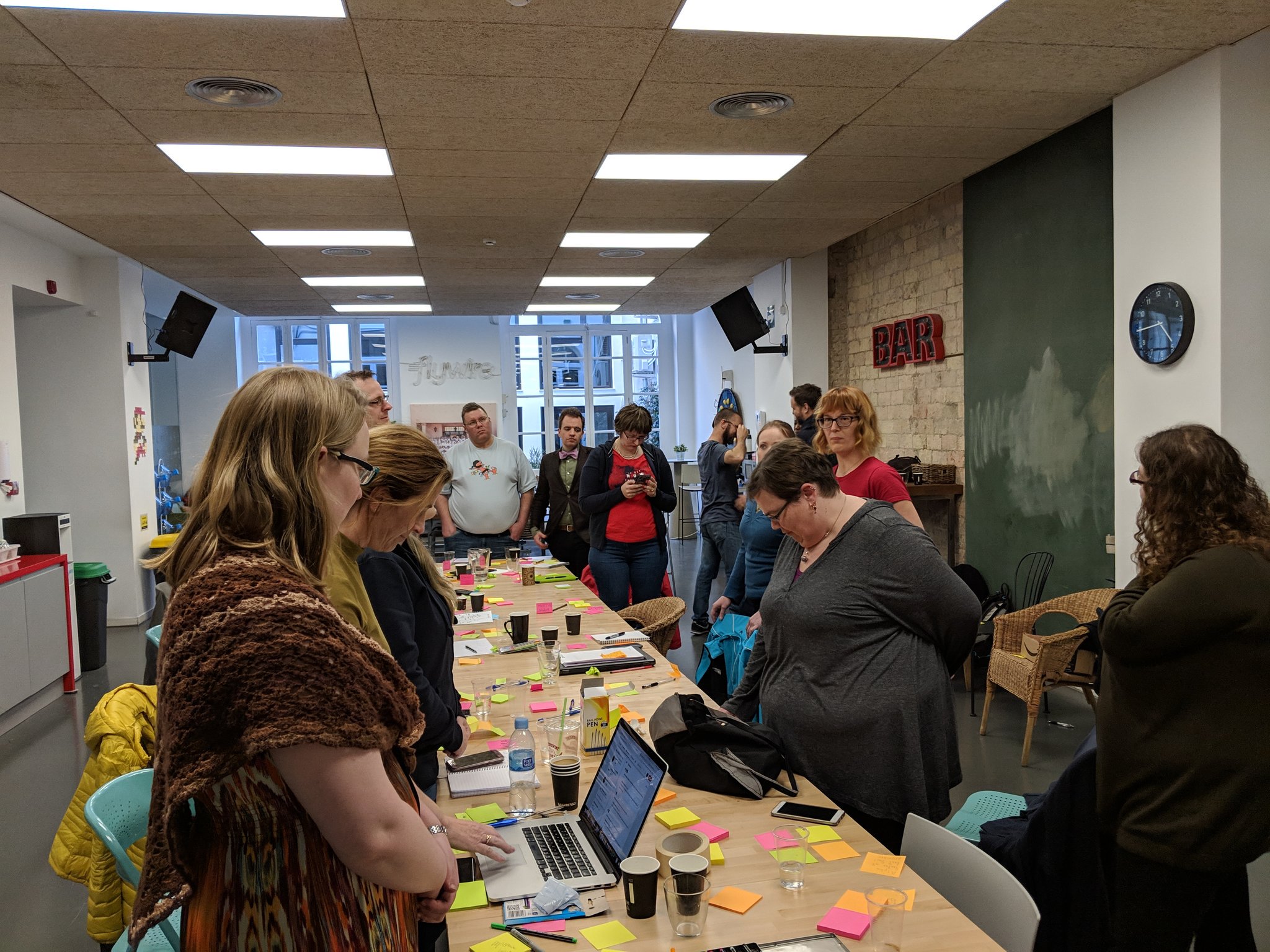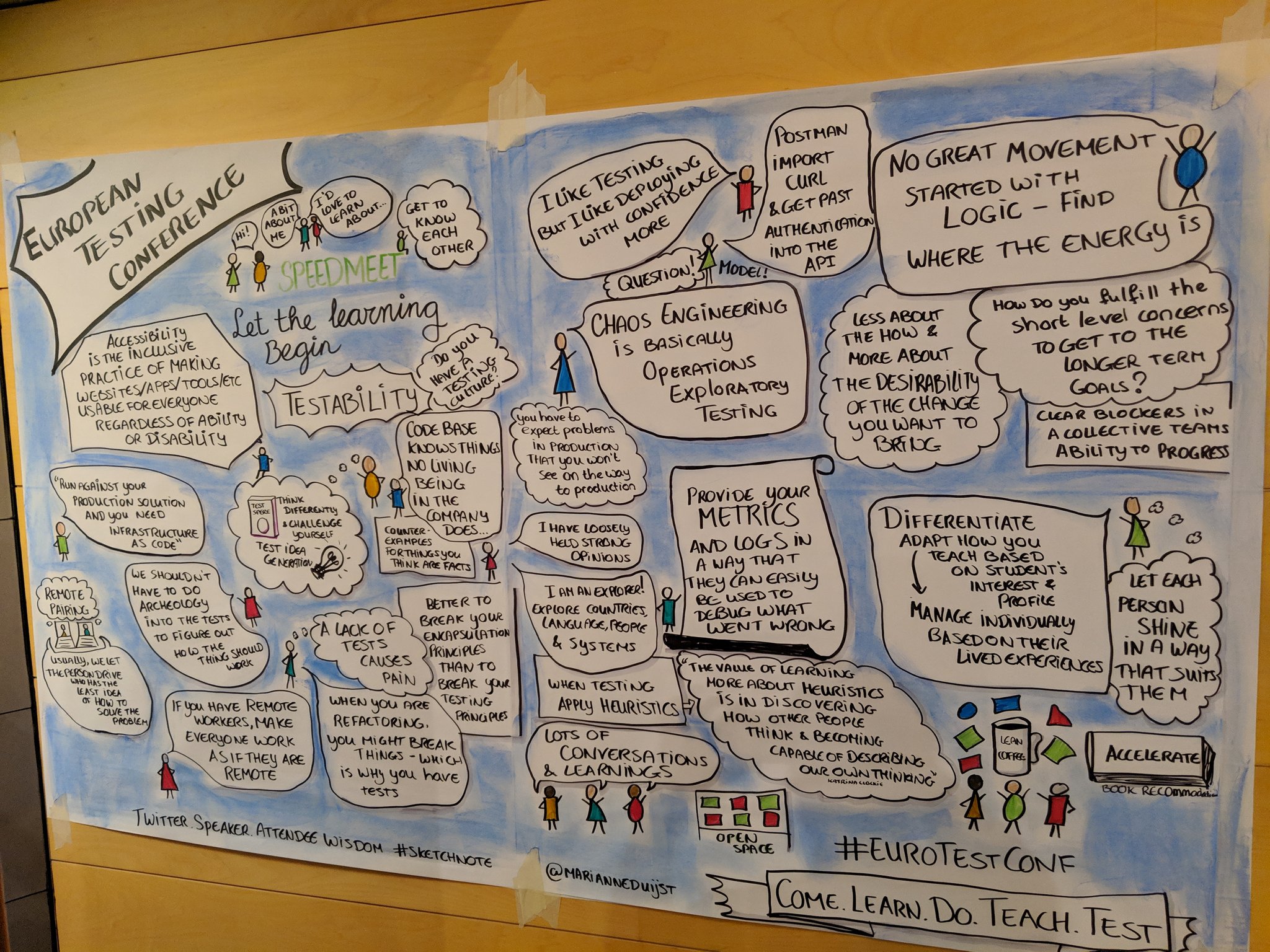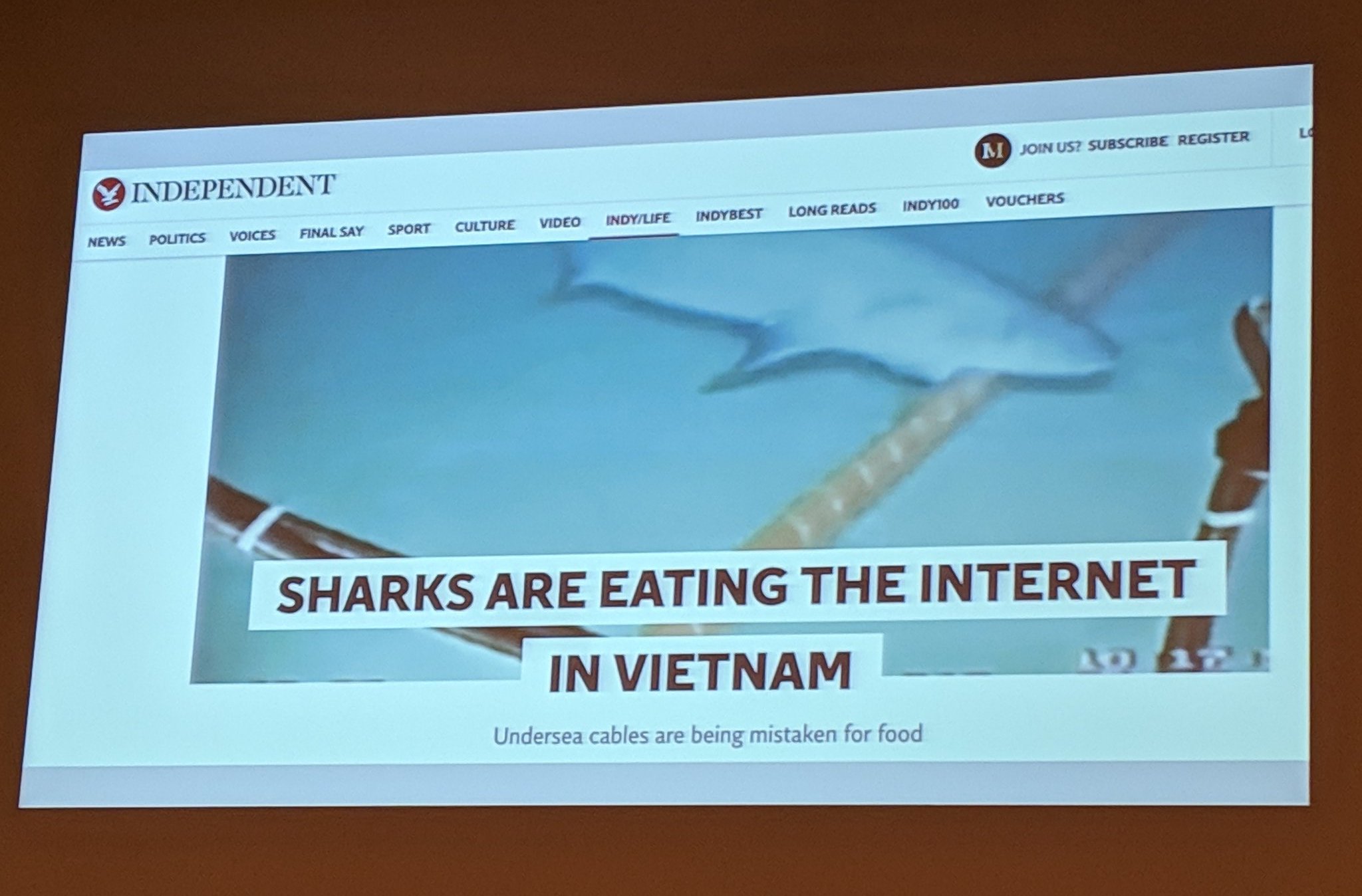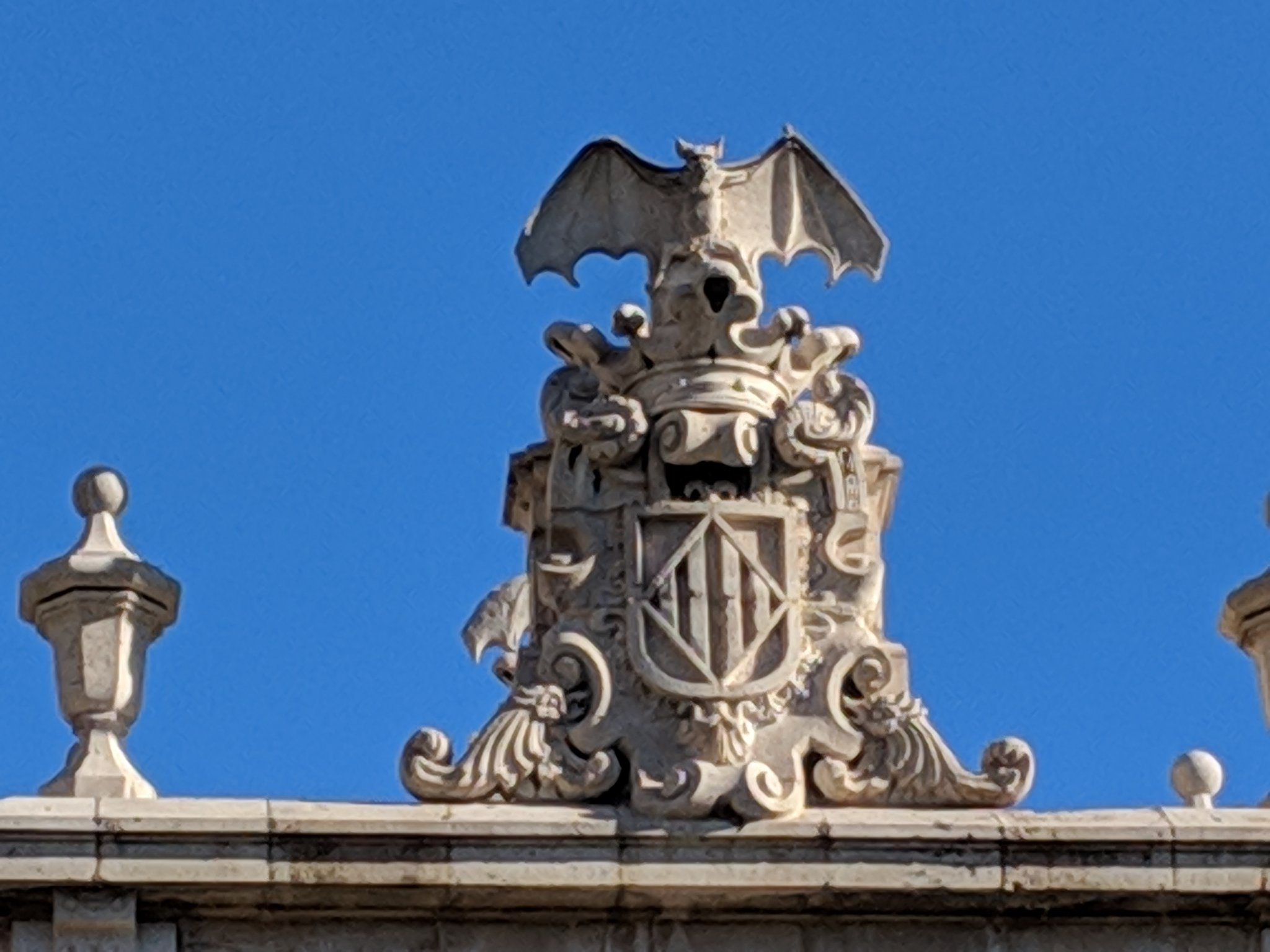As I've mentioned before, I found a way to extend ETC by joining "Exploratory testing peer conference" that was organised by Maaret Pyhäjärvi, Anne-Marie Charrett and Alex Schladebeck. In essence, a full day of people talking about ET and trying to see what does ET mean today, after 30-odd years since the term was coined and kickstart some work to current knowledge to this domain.
Regardless of how would this day go, I learned one thing already: simply ask - I would not be having this experience without asking to join, and I'm very glad I did that. I'm also very thankful for being allowed to join, as it was a great learning experience for me.
I've never been to a peer conference before, and I didn't know what to expect, besides a bunch of smart people (and me) talking in a room, which is usually a great start.
The discussion was facilitated masterfully by Alex, using K-cards and we had an interesting addition to this: we had on the whiteboard the twitter handles of every participant, and noted each time. It looked like so:
This had an interesting effect, at least on me - I was more conscious about giving others time to speak (I received in the past feedback about taking too much "spotlight time" and am trying to be more aware of that) and I could use this tool to actually measure how much do I speak in comparison to others. The answer, which is not in this picture, is that even when I try, and even after asking several times to drop my turn after someone said something similar enough, I still ended up speaking more times than most, if not all, participants.
The subjects themselves were quite versatile: we spoke about sharing intent while mobbing, teaching ET to developers, what happens when good exploratory testers are looking on unit tests, an experience report on trying to integrate ET practices on large scale dark-scrum organization, how to give a 5 minutes elevator pitch on ET and microheuristics. Those are only the topics we got to actually talk about, and there were many more ideas, as can be seen here:
One important feature of the K-cards for such discussions is the blue note (orange in our case, due to logistics), the ability to signal "We're done \ losing focus \ I'm bored" is important and helped us several time during the day.
Another thing I liked was that after each discussion (at least in the first half of the day) we did a quick retrospective on the discussion and came up with some improvements. I have never before seen such a large group of people having a discussion that was so well organised.
Naturally, there are some things I think we can improve for the next time. The main thing is to have a clearer goal for the peer conference. With a topic as vast as ET and with so little time, I felt the need for a narrower question\topic. During one of the breaks, after a discussion that we felt went astray, Lisi and I stood next to the board and tried to see which subjects are in the intended theme of the day (As we understood it) and as you can see in the picture above, out of the 12 topics on the board at the moment, only 5 were positively there, and 4 were about something completely different that happened to have some ET close to it. We could either trust the organisers to design a format for the day, or spend a short time box and decide on the way we wanted to do things, but as it was, we started the discussion without agreeing explicitly on our goal, which I think caused some friction.
One thing I can surely say - If I thought that participating in a conference is an intense experience, this peer-conference took it up a notch. In a larger conference, it is always possible to find some small places to rest - either lose some focus in a talk, or find a corner where the crowd is providing some white-noise. With 24 people in the room, even taking a break is still speaking with the same people, and the mind-work done by actively participating in a discussion is more intense. At some point, just to get some air and let the mind rest a bit I went outside to play catch with Mira. By the end of the day, most of us were a bit depleted, in the most positive way possible.
Of course, no conference is just ending just when the official time is up, and we all started to walk towards the hotel. In a smaller group, some further discussion was continuing and I think I got to understand better some of the words people were using. Eventually, though, we've decided it was enough, and started talking about getting something to eat. As it happened, I ended up walking with Thomas and Lisi. We just walked about, chilling off and talking. After such an intense day, I felt very recharged just speaking with them quietly. Then we got to a park that had a notice sign - closes in 20:30. As we still had well over an hour, we entered and walked through it for a while. when at 20:00 we got to the gate through which we've entered, we found it locked, as were the next gate and the two after it. We were starting to be slightly worried, but not very much. eventually, we saw someone other than us in the park, and could see an open gate. From there we could walk back to the city center and had a nice dinner. A great way to finish the day.





